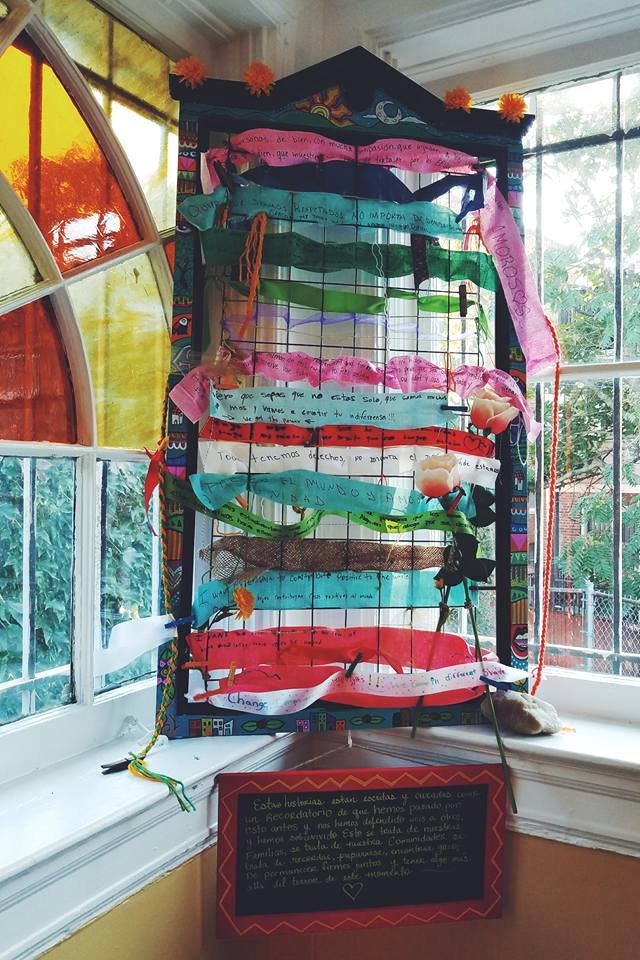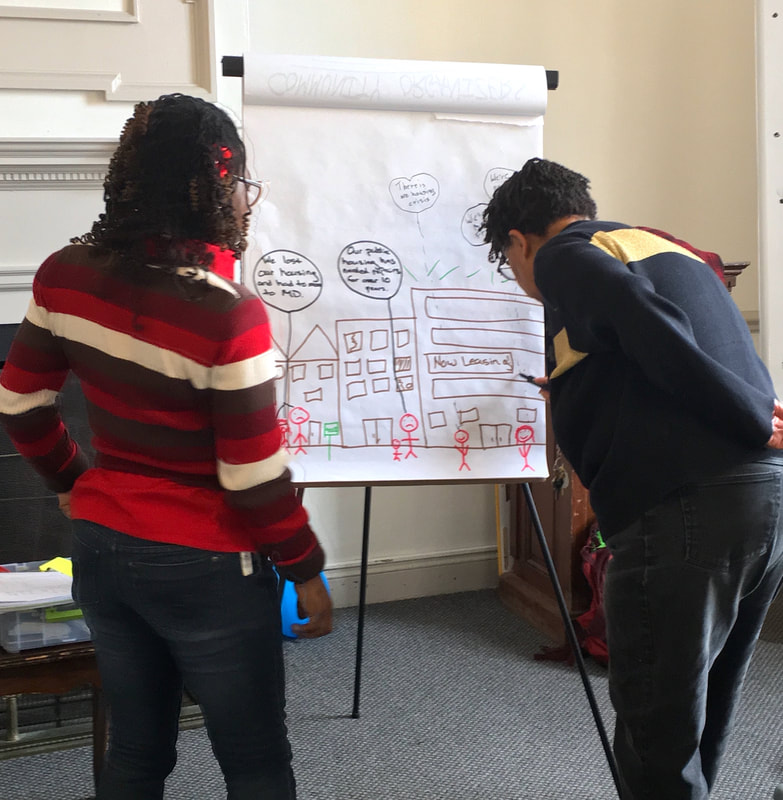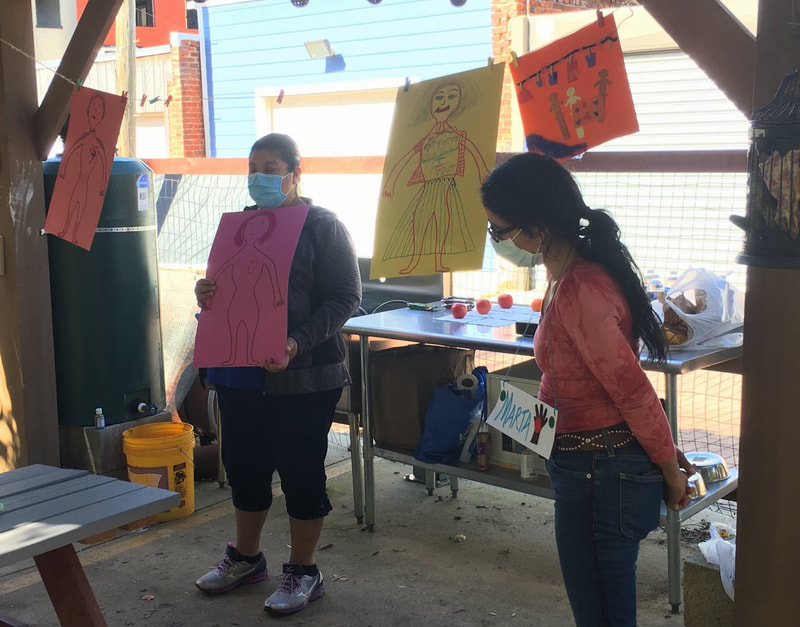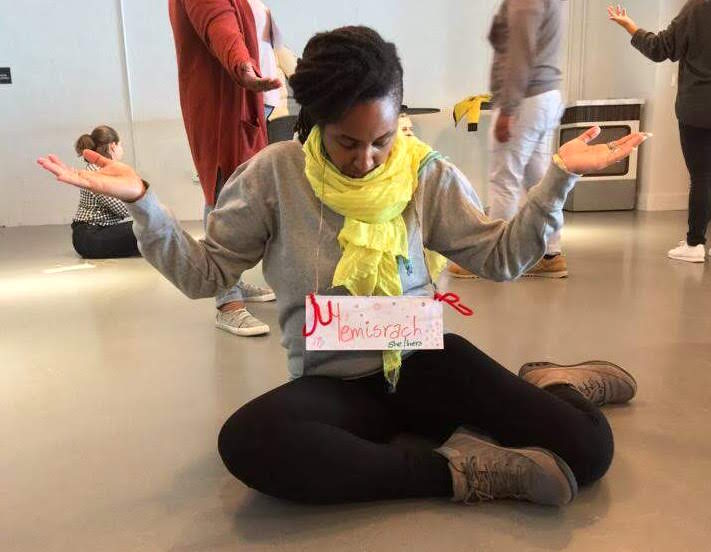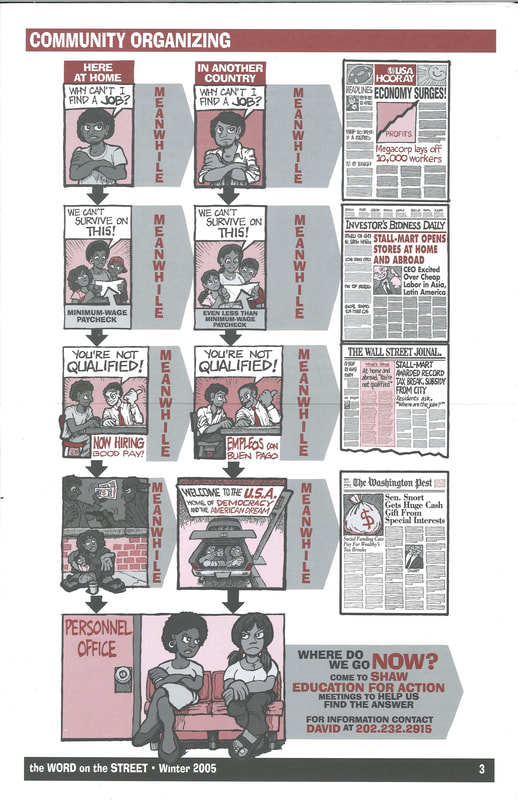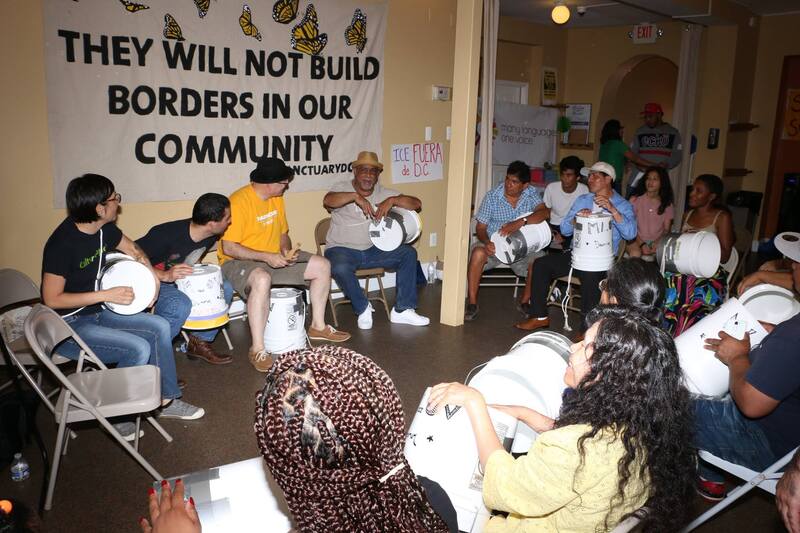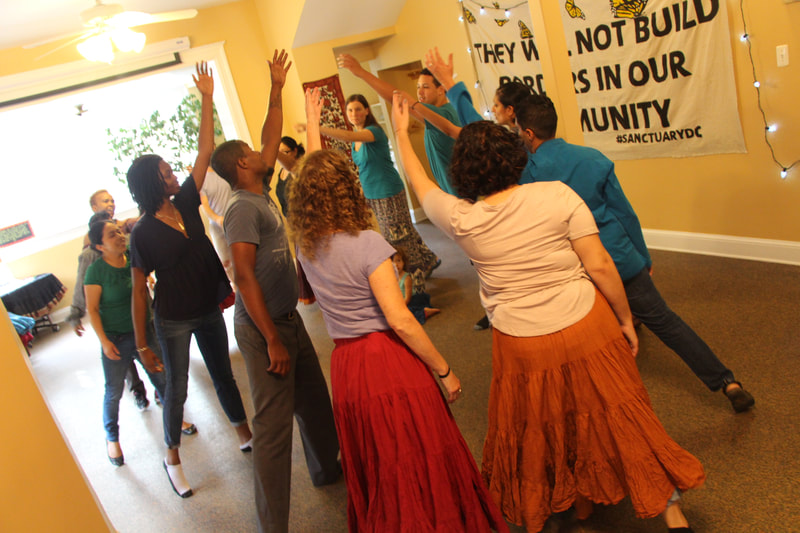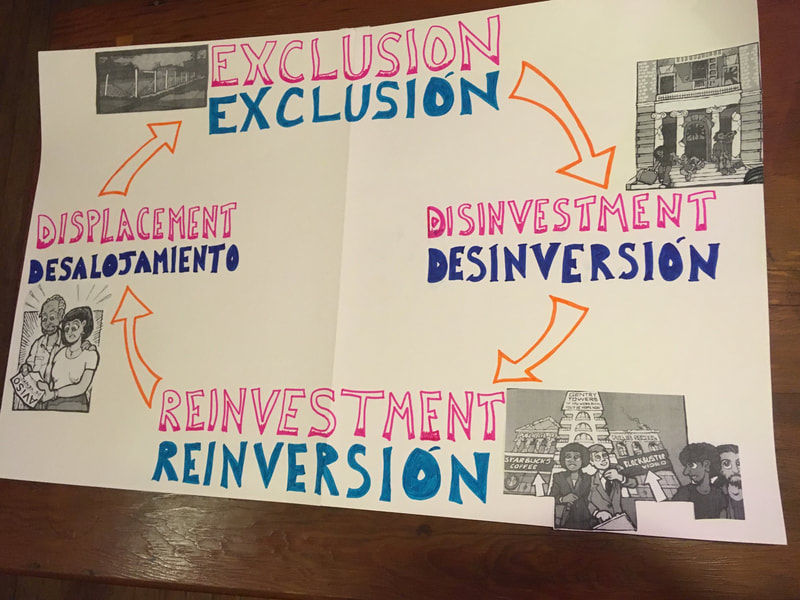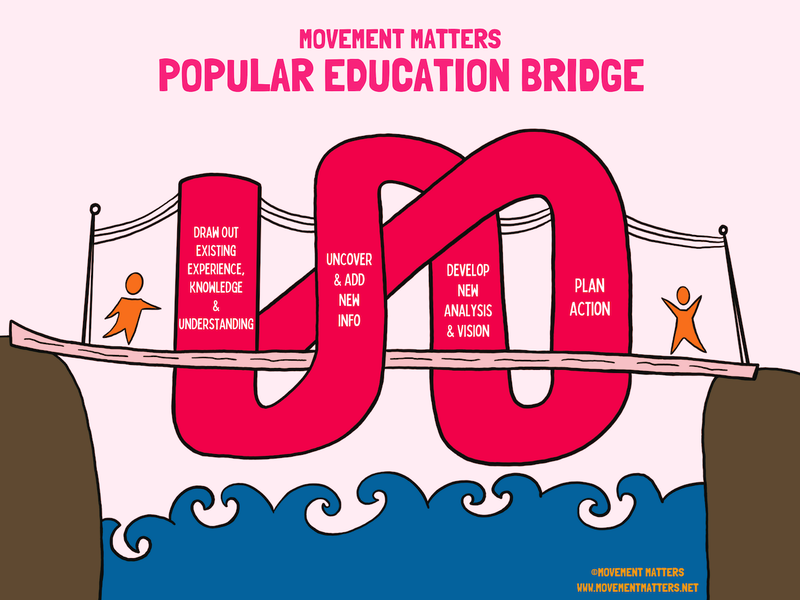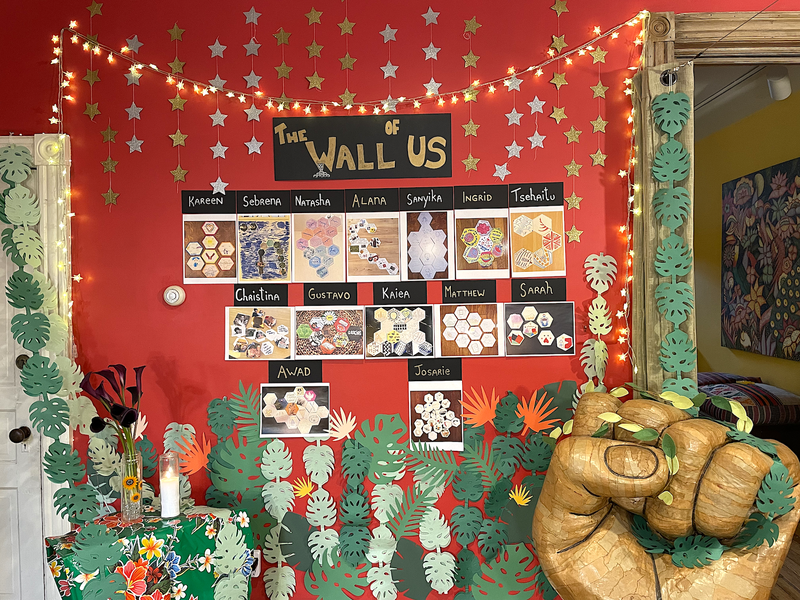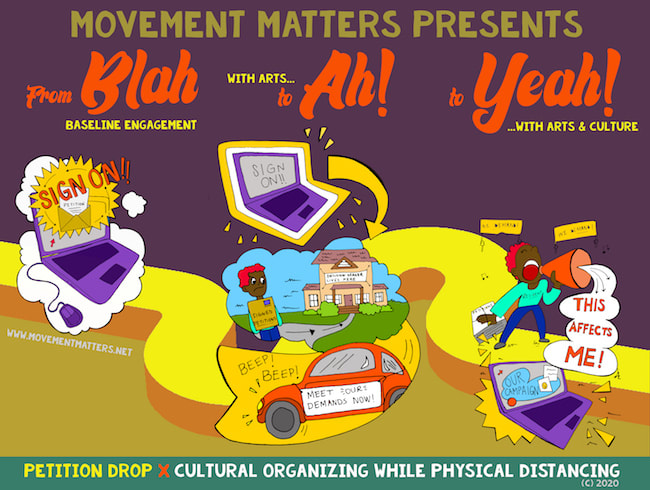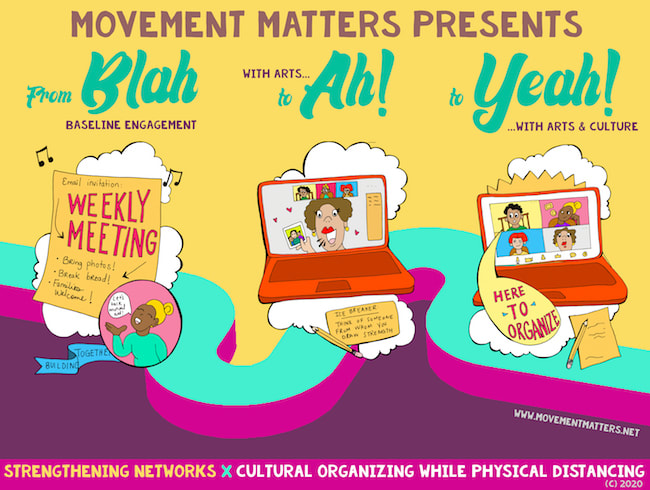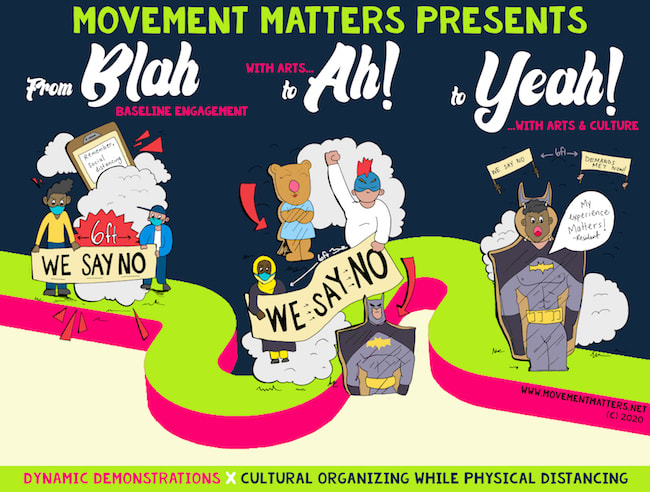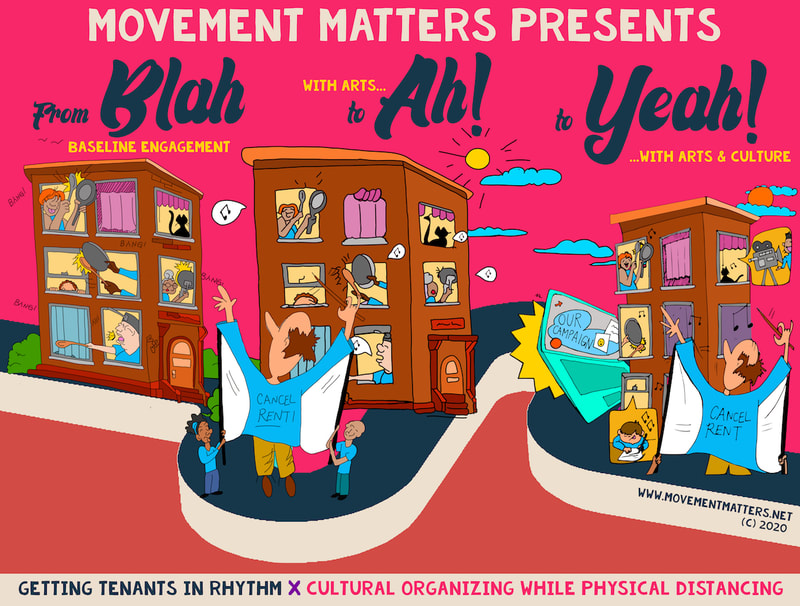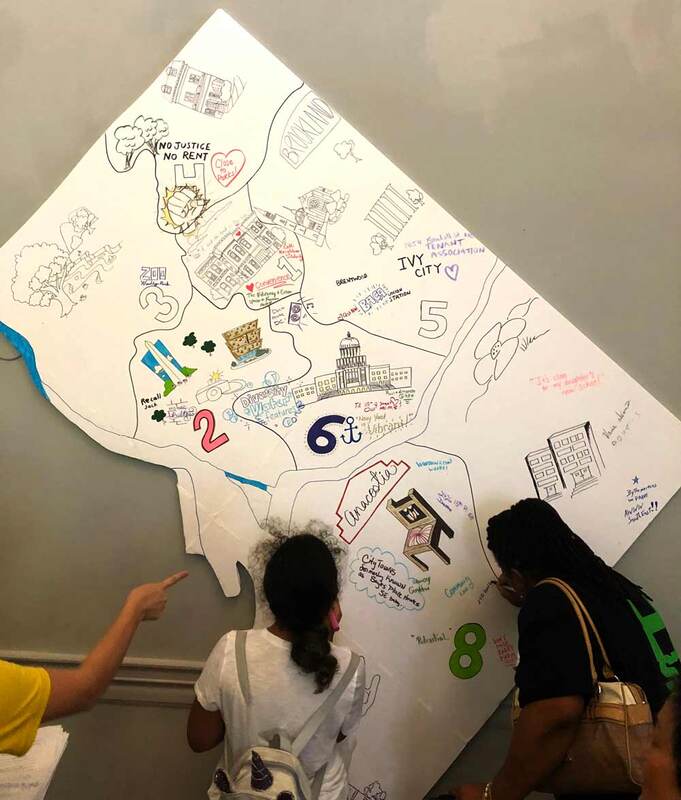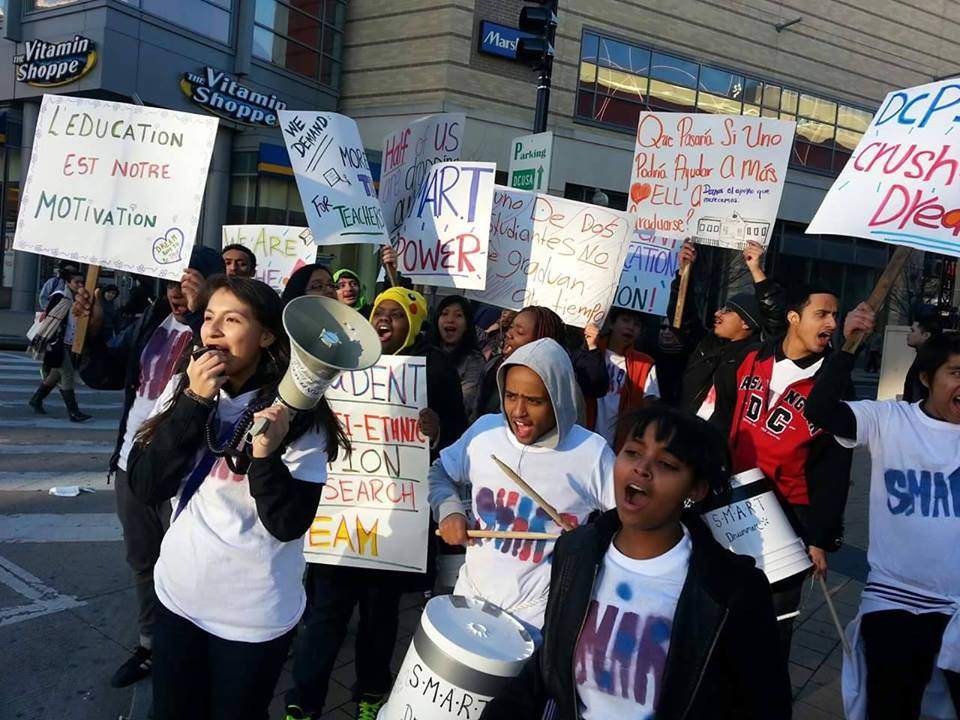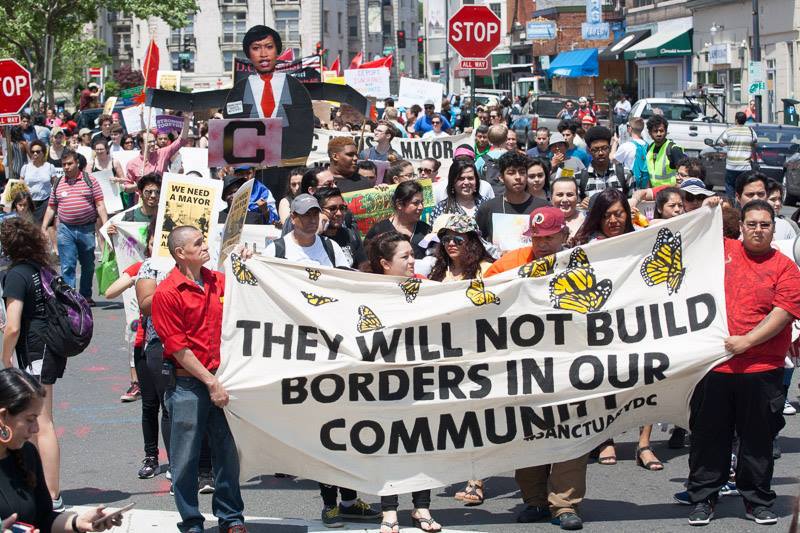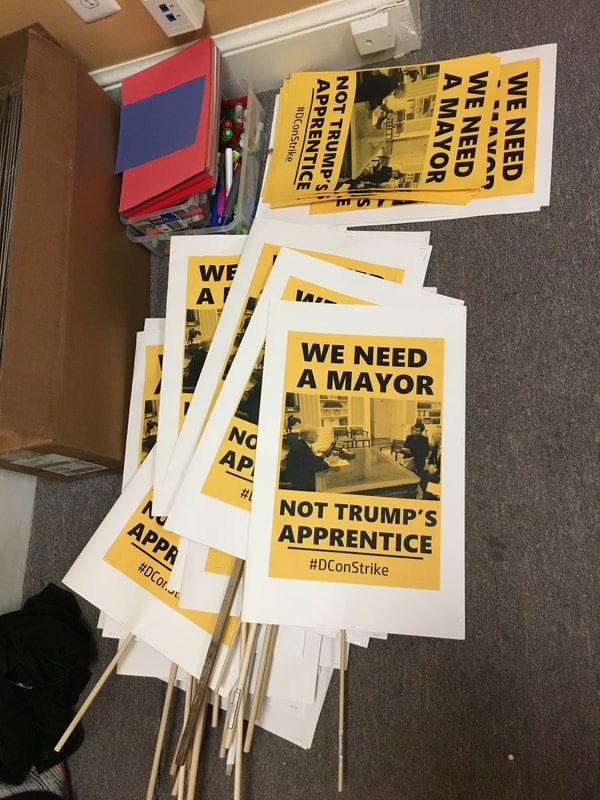community. expression. liberation. movement.
MM Popular Education and Cultural Organizing Approach
Organizing is both art and science. It requires keen strategy and tactics that confront and challenge real world conditions and oppressive powers that harm our communities (lo de afuera). But it also requires that we build new ways of being with one another, ways that model the world we are trying to create (lo de adentro).
Movement Matters understands that deep organizing, movement building organizing, needs to be built on a foundation of popular education and culture. We cannot sacrifice the internal power for the external. When we do, we build weak institutions and processes that can, at best, win short term incremental change. But we also need to combine internal power with the external in order to see our vision made manifest in the world. Popular education and cultural organizing allow us to connect to our ancestral knowledge and develop the internal group culture to meet these dual needs.
Movement Matters understands that deep organizing, movement building organizing, needs to be built on a foundation of popular education and culture. We cannot sacrifice the internal power for the external. When we do, we build weak institutions and processes that can, at best, win short term incremental change. But we also need to combine internal power with the external in order to see our vision made manifest in the world. Popular education and cultural organizing allow us to connect to our ancestral knowledge and develop the internal group culture to meet these dual needs.
